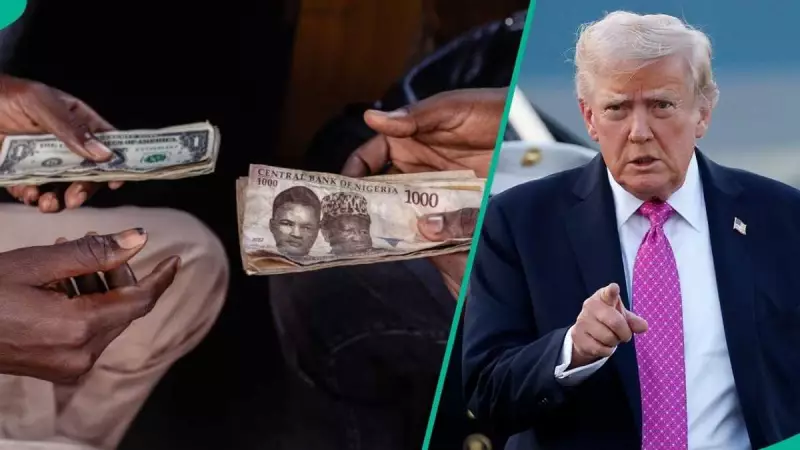
The Nigerian financial markets experienced severe turbulence following Donald Trump's surprising victory in the US presidential election, sending shockwaves through Africa's largest economy.
Naira's Dramatic Decline Against Dollar
The Nigerian Naira suffered one of its worst trading sessions in recent memory, plummeting to unprecedented levels against the US dollar. Currency traders reported panic selling as investors rushed to secure dollars amid growing uncertainty about Trump's economic policies.
Forex markets witnessed intense volatility with the parallel market experiencing particularly sharp movements. Bureau de Change operators struggled to keep up with the rapidly changing rates as demand for safe-haven currencies surged.
Stock Market Bloodbath
The Nigerian Stock Exchange wasn't spared from the financial carnage either. Key indices recorded substantial losses as foreign investors began pulling out funds from emerging markets.
Blue-chip stocks across banking, manufacturing, and oil sectors took significant hits, wiping billions of Naira off market capitalization within hours of trading.
Expert Reactions and Market Analysis
Financial analysts expressed deep concern about the sudden market movements. "We're witnessing a classic risk-off scenario where investors retreat from emerging markets during periods of global uncertainty," noted Lagos-based economist Adebayo Johnson.
Market observers highlighted several factors driving the sell-off:
- Potential changes in US foreign policy under Trump administration
- Concerns about reduced foreign investment flows
- Anticipated strengthening of US dollar
- Global market contagion effects
What This Means for Ordinary Nigerians
The currency collapse has immediate implications for consumers and businesses alike. Importers face higher costs, which could translate to increased prices for goods and services across the economy.
Families with children studying abroad and medical tourists are particularly vulnerable to the exchange rate shock, facing significantly higher expenses in dollar terms.
Central Bank's Response
Financial markets are closely watching for intervention signals from the Central Bank of Nigeria. Previous episodes of currency volatility have prompted monetary authorities to implement various measures to stabilize the Naira.
Market participants expect emergency meetings and potential policy announcements in the coming days as authorities grapple with the unfolding crisis.
Historical Context and Future Outlook
This isn't the first time global political events have rattled Nigerian markets. However, the speed and severity of this reaction underscore the interconnected nature of modern financial systems.
Economists suggest that while short-term volatility is expected, the long-term impact will depend on how quickly markets adjust to the new political reality and what specific policies the Trump administration implements regarding African trade and investment.





